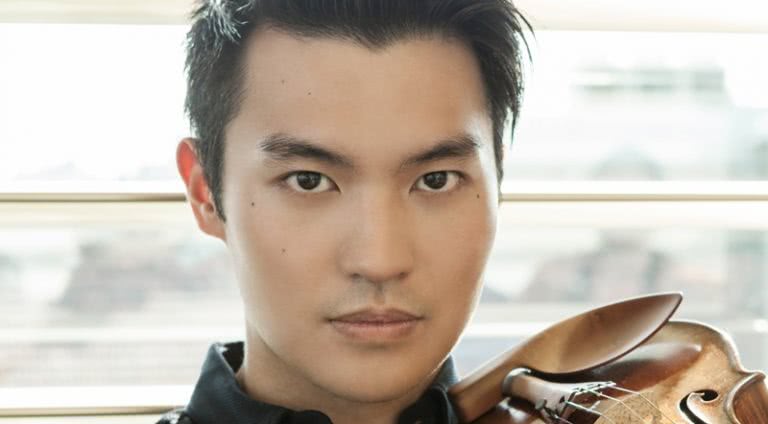If you’re looking for the rock star of classical music, Ray Chen is your man. He has been touring the world since he was eight (he’s now a decrepit 25), picking up awards and accolades aplenty along the way. Sponsored by Armani, Chen has also been the proud possessor of not one, but three Stradivarius violins.
Between recording for Sony Masterworks and developing his social media following (1.5 million on SoundCloud alone), Chen will be undertaking his first national tour of Australia throughout November. Not bad for a guy who started out thinking the whole thing was just a game.
“Well, in the beginning you have to think of it like a game,” Chen laughs. “It’s not something that is meant to be at all serious; you don’t think of it as a career. You just think of [the violin] as an enjoyment, almost like a toy. As I got more and more interested in it, more passionate, I realised that it really has to be a self-nurtured thing. It never works out well for either party if it’s forced. I mean, in very, very rare cases you get some prodigy who is like that, but that’s more of a freak product. Most of the time it’s usually the child will end up quitting, and there’s no pleasure in it.”
Of particular interest are the various histories associated with Stradivarius instruments, of which Chen, having performed with the 1721 Macmillan, the 1708 Huggins, and currently the 1715 Joachim, is now a part. Given their prestige – being passed from hand to hand throughout some of the most tumultuous events in world history, finding themselves in the lives of so many fascinating people – they almost seem fictitious, as though they are a plot device linking different stories together.
“It’s incredible,” Chen admits. “Right now I’m very excited to be playing the Joachim Stradivarius. Joseph Joachim was personal friends with Brahms. Brahms’ violin concerto was dedicated to him, and so was the Bruch Violin Concerto. And I mean, this is his instrument. To think that his hands have played this, and that it was perhaps even played by Brahms, that this instrument was in his presence, it’s just mind-boggling. It’s quite intimidating actually, and very humbling. If I make a mistake I can’t blame it on the instrument, the notes are already there. But these violins are all very different, they all have their personalities.”
Chen is also convinced that the subtleties in sound and character are distinct from violin to violin, and that were you to compare the instruments side by side, the differences would be clear.
“I firmly believe that one can hear the difference, but it will always depend on the player. There is a famous Heifetz story, when one lady said to him, ‘Mr. Heifetz, the sound of your violin is so beautiful.’ And he held up the violin to his ear and said, ‘Funny. I don’t hear anything.’ And I do think to some extent, yes, that’s true. Well, being a violinist myself of course I’d say that,” he laughs. “But I have to credit the instrument a great deal. Between Strads it’s a matter of different tastes, different personalities, some more preferable to others. These things are like finding a partner, and in a sense that’s exactly what your relationship to an instrument is. When you’re performing onstage you need someone you can trust, someone who you know very well. And that’s your violin, even though it’s strange to be talking about them like this. They’re more than just inanimate objects.”
See him live alongsideTimothy Young atCity Recital Hall Angel Place onMonday November 10 and Saturday November 15, tickets here.Also appearing at the Newcastle Conservatorium of Music on Saturday November 8, tickets here.


































